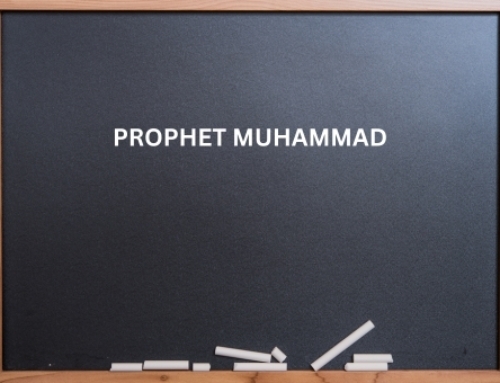By: Laura El Alam
Muslims derive rules and laws from two sources: the Quran and the Sunnah. The Quran is the holy book that Allah (God) sent to humanity through the Prophet Muhammad (peace be upon him). But what is the Sunnah?
Sunnah is an Arabic word that refers to the practices, habits, saying, and traditions of the Prophet Muhammad (peace be upon him). In the Sunnah, Muslims find specific guidance for many situations as well as the basic rituals of our faith. It is through the Sunnah that we know how to pray, for instance, because the companions of the Prophet Muhammad (peace be upon him) carefully observed and recorded the way he (peace be upon him) made wudu (ablution) and performed his salat (ritual prayers). Over 1400 years later, billions of Muslims all over the world are still praying in the exact same manner as the Prophet Muhammad (peace be upon him) because he is our ultimate role model.
The importance of the Sunnah cannot be underestimated. In several places throughout the Quran, Muslims find the command, “Obey Allah and obey the Messenger.” The Prophet (peace be upon him) himself said, “Whoever turns away from my sunnah has nothing to do with me.” In other words, we cannot be a Muslim unless we believe in the Sunnah and acknowledge the necessity to strive to follow our Prophet’s example and advice.
Allah did not send a mediocre guide for humanity. On the contrary, in the Prophet Muhammad (peace be upon him), we have an extraordinarily loveable, kind, respectable, beautiful, wise, and gentle role model whose remarkable character continues to inspire humanity in modern times.
In addition to being a messenger chosen by Allah, the Prophet (peace be upon him) was also a father, leader, statesman, husband, and friend. In all of these roles, he (peace be upon him) demonstrated the best course of action, the best manners, and the best decision-making. The people who were blessed to live alongside him 1400 years ago wrote about being in awe of his sublime mannerisms, physical beauty, modesty, and impeccable behavior. His companions meticulously recorded his actions and sayings (hadith), and in these, plus the Quran, Muslims have a blueprint for success in this life and the next.
The word “Sunnah” can also be used to refer to recommended acts of worship. While certain actions are fard, or obligatory, others are Sunnah, or recommended. For instance, fasting during Ramadan is fard, but fasting at any other time of year for the sake of Allah is Sunnah. There are many recommended actions that can earn us great rewards, and they are all based on the actions of the Prophet (peace be upon him). Some simple Sunnah actions are:
- smiling at others
- sleeping on our right side
- sitting while eating or drinking
- turning our entire body to face the person who is speaking to us
- not interrupting others when they speak
- cleaning our teeth several times a day using siwak (special mouth stick) or a toothbrush
- not complaining about the food served to us
- making wudu (ablution) before sleeping at night
- being patient, playful, and gentle with children
To really understand and implement the Sunnah, it is helpful to learn about the Prophet Muhammad (peace be upon him) and what made him so remarkable. There are numerous resources for this.
- The lecture series by Sheikh Omar Suleiman, “Meeting Muhammad”
- The lecture series by Sheikh Yasir Qadhi, “Seerah of Prophet Muhammad”
- The book The Sealed Nectar by al-Mubarakpuri Safi-ur-Rahman
- The book In the Footsteps of the Prophet by Tariq Ramadan
- The book Muhammad: an Authentic Overview by Mustafa Umar
Have more questions? Call 877-WhyIslam, you deserve to know!
Got Questions?
We have Answers. Get in touch now.








